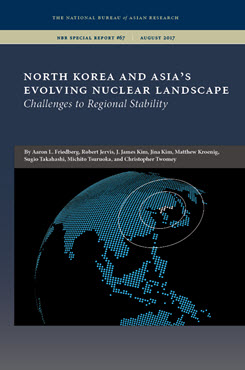Domestic and Regional Constraints on South Korea's Approach to North Korea
This essay explores the domestic and regional constraints on South Korea with respect to its North Korea policy and identifies the lack of internal and external consensus as a significant hurdle to long-term policy planning and implementation.
EXECUTIVE SUMMARY
This essay explores the domestic and regional constraints on South Korea with respect to its North Korea policy and identifies the lack of internal and external consensus as a significant hurdle to long-term policy planning and implementation.
MAIN ARGUMENT
Coming on the heels of the fourth and fifth nuclear tests in 2016 and a series of missile tests that followed, North Korea is the single greatest security problem for South Korea. South Korea’s ability to manage this threat is hampered by important domestic and regional constraints. On the domestic front, an analysis of South Korean public opinion and political history suggests that the country lacks a clear national consensus on what to do about the North Korean nuclear problem. The public is largely divided along ideological lines, but this division is mediated by the overall mood of the strategic environment. On the regional level, the great-power rivalry between China and the U.S. poses a unique challenge for South Korea, which seeks to benefit from a mix of engagement and hedging with respect to both China and the U.S. Nonetheless, South Korea’s security commitments will ultimately be tied to its relationship with the U.S., given the long history and institutionalization of the alliance.
POLICY IMPLICATIONS
- Provided that there are no major changes within North Korea or China, South Korea’s choice regarding its North Korea policy may be restricted to limited pressure and talks.
- While South Korea stands to benefit from the development of indigenous capabilities, joint development and acquisition in cooperation with the U.S. may prove to be a more useful next step for addressing the evolving threat from North Korea.
- While there are challenges to cooperation with Japan, South Korea could exert greater effort in areas such as information sharing (i.e., through the General Security of Military Information Agreement) and joint readiness exercises.
J. James Kim is a Research Fellow at the Asan Institute for Policy Studies and Director of the Asan Institute for Policy Studies in Washington, D.C.


